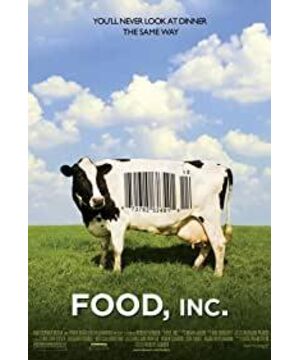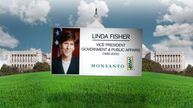The main body of vegetable and meat production in China is mainly small workshops. Relatively speaking, the use of pesticides and fertilizers is relatively small, and it should be less pollution-free. However, the quality of food depends to a large extent on the morality of the producers. However, it also benefits from the production of small workshops. If there is a food problem, it will be limited to a small area. And because China's national conditions and the power of the food industry are relatively weak, it is difficult to form an interest group that can effectively lobby or even oppose the government. Therefore, if the government is determined to govern, it will encounter less resistance, but it is inevitable to press the gourd to float. From the scoop, treat the symptoms but not the root cause.
The United States is completely opposite to China. Food production in the United States is completely controlled by several large multinational companies. Large-scale, systematic, and streamlined production, a large number of pesticides, fertilizers, and even antibiotics and genetically modified food are used in the production process. The output is greatly improved, the quality of food is uniform, and the production of large factories is easy to monitor. However, no matter how strict the food hygiene standards are, in the long production system, the probability of food contamination is very high, and once contamination is an event that endangers the whole country, and this accident occurs almost every year in Happened in America. Food companies produce some products that use antibiotics and chemicals to clean up food, which inevitably leaves residues on food. And because of the huge power of food companies, they lobbied the relevant departments of the state organs to seek benefits for their own group, but the fast food they produced harmed the poor civilians all over the United States, and the relevant state authorities were almost helpless against them.
However, American food has also entered China on a large scale, and China has gradually begun to produce food in factories. How much of what we eat is produced by those factories, and how much is produced by black-hearted small workshops? The most ironic thing is that the Smithfield Company, which was criticized countless times in the film, was acquired by Shuanghui Group a few years ago.
Illegal immigration may really not blame the white left, but every ordinary American who benefits from industrialized food production, as well as the capitalists who gain the greater benefit, and even the poor around the world who eat cheap American food. It is the ultra-low wages of these illegal immigrants that support the efficient food industry in the United States. But the funny thing is that it was the cheap food produced by the food industry that was dumped into Mexico, which bankrupted Mexican farmers and forced them to flock to the United States to make a living, and their low wages further drove down the price of food.
The funniest thing is that the USCIS is well aware of these things. They have reached a tacit agreement with the food company, and the USCIS will regularly come to the factory to arrest several illegal immigrants every week. In this way, the face of the immigration bureau is saved, and it is better to communicate with the superiors; it is not a pain for the food company to capture a few people, but it can take the opportunity to beat the remaining workers, and the business is a win-win situation.
Cheap food from the United States is dumped all over the world, and it even affects the situation in the world. Cheap U.S. agricultural products are overwhelming the world, overwhelming otherwise subsistence farming, leaving unemployed farmers idle, walking the streets, and exacerbating regional unrest. The United States can take the opportunity to control this region. As long as it is a little dishonest, it can influence the regional situation by manipulating the price and supply of agricultural products. No wonder, some people say that each of the most powerful weapons is not a dozen aircraft carrier battle groups, but American agriculture.
America's claim to be a country ruled by law is indeed a well-deserved reputation. U.S. genes are also patented, and large seed companies can control the most basic crops by controlling genes, such as Monsanto, which controls 80% of U.S. soybeans. They don't allow farmers to keep seeds, which is understandable, after all, the seeds are researched by them. I don't want to plant their seeds okay? no. Even if you don't plant their seeds, there will always be Monsanto seeds contaminating your land because of wind or animal pollination, and how can you prove that you didn't plant it on your land intentionally? For the average American red-neck farmer, it was even harder.
You also said that I have nothing to do with this industry, just out of righteous indignation, I want to use my influence to spread the shady secrets of food companies among my relatives and friends around me? Actually not. There is a vegetarian defamation bill in the United States. As long as you "slander" those food companies and cause a relatively large impact, you are likely to be sent to prison. Even if you win in court, the food company will sue you, and Oprah won the case, but it took seven years and a million dollars. Food companies can afford it, can you afford it?
The most desperate thing is that this situation is almost unsolvable. American food companies are a powerful interest group, and their lobbying groups are active in Washington, passing which bills are beneficial to them and prevent those that are not conducive to them. Their bill passed. Many of their former employees have entered various departments of state agencies and hold important positions, and food companies pay huge political contributions every year. Lobbying and political donations have an image title in China - collusion between officials and businessmen. The possible difference from China is that collusion between officials and businessmen in the United States is a neutral word, while China is a derogatory word.
The most interesting thing is that this somewhat deformed food industry in the United States is the most advanced in the world, and it is what China is striving to achieve. There are no farms that are fresh, and if they want to do all of them, then China will almost return to the level of North Korea. If a country wants to become prosperous and strong, it wants to liberate more labor from the land, it wants to get rid of the hidden worries of food imports, and it wants to control the world's bulk agricultural trade. This set of industrialized agricultural production in the United States is the most efficient.
View more about Food, Inc. reviews










